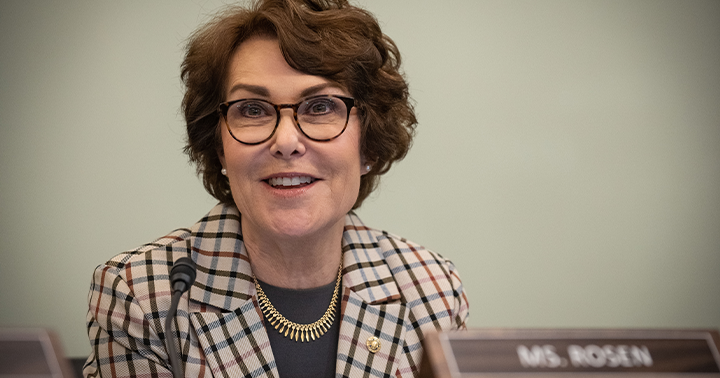(The Center Square) – U.S. Sen. Jacky Rosen, D-Nevada, has proposed the Physicians for Underserved Areas Act, which aims to bring more doctors to regions in need.
The bill, S.709, was announced as Nevada ranks 46th for states in primary care physicians per 100,000 people. All 17 of the state’s counties have healthcare professional shortages.
S.709 would address the shortage of physicians by redistributing medical residencies to underserved regions such as rural areas.
“The dire shortage of doctors in our state is hurting Nevadans’ ability to get quality medical care,” Rosen said in a news release. “We know that when more doctors train in our communities, they are more likely to stay here. That’s why I’m working across the aisle to bring more doctors to Nevada by increasing medical residency slots.”
More than half of medical students who completed residency, the entry-level stage of a medical career, stayed afterward to practice in that same state as physicians, said the Association of American Medical Colleges.
The bill would revise the federal residency program, or Graduate Medical Program, to give residency preference to areas with physician shortages.
“Nevada has significant shortages in nearly every physician specialty, and we are woefully underfunded for residency positions compared to most other states,” said Dr. Marc Kahn, dean of Las Vegas Kirk Kerkorian School of Medicine, about the complementary U.S. House bill, HR 1585. “Any effort to decrease this disparity is greatly needed for our community.”
Residency positions, mainly funded by the federal government’s Medicare program, are allotted to hospitals to train doctors. When a hospital is closed, the resident slots are redistributed within the same state, but currently with no preference toward areas with a greater need for doctors.
“By ensuring that unused residency slots are swiftly redistributed to hospitals that need them most, this bill will help strengthen the rural health workforce and expand access to care in underserved areas,” said Alan Morgan, CEO of the National Rural Health Association.
Amidst serious state budget constraints and concerns over President Donald Trump’s potential cuts to Medicare, the bill does not propose new positions for residents. Instead, the legislation is designed to redistribute residencies, as they become vacant, to areas with the greatest need for doctors.


